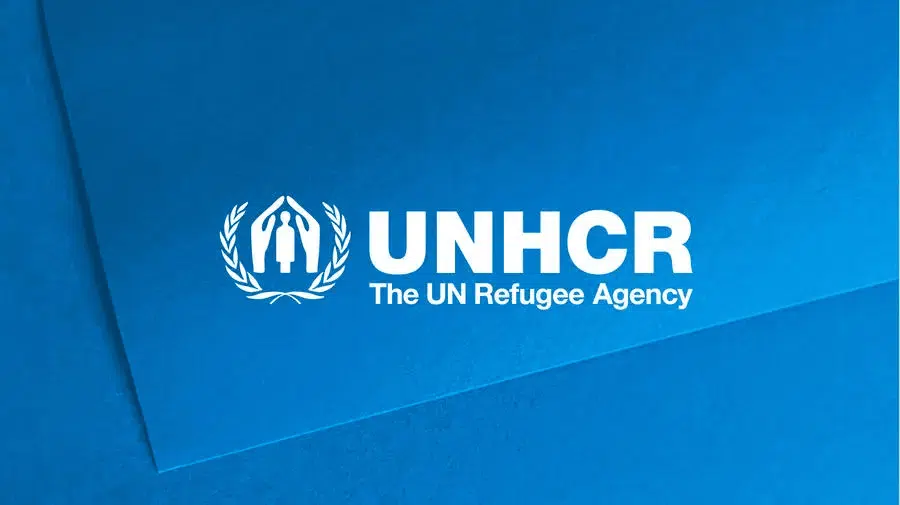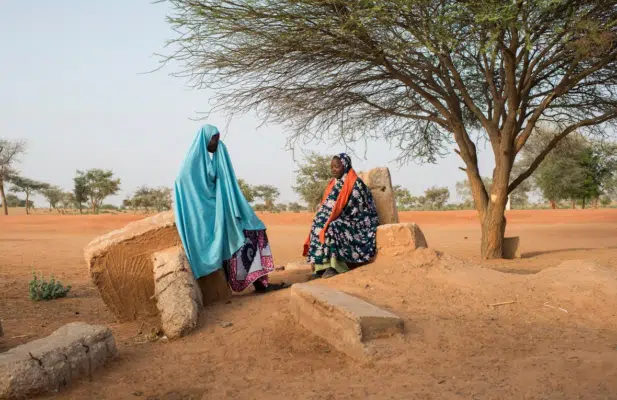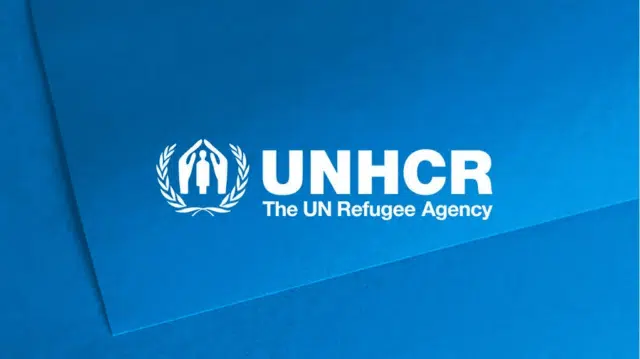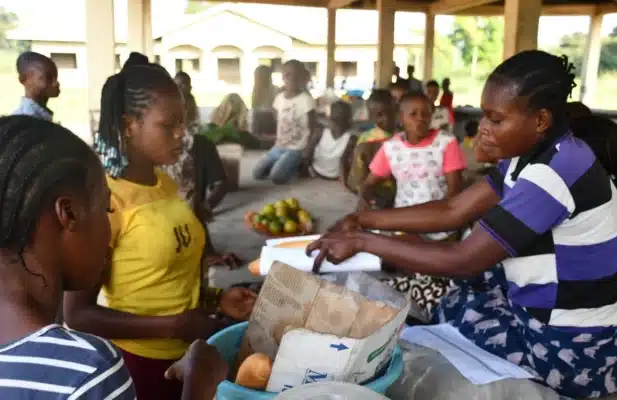
© UNHCR
This is a summary of what was said by Emmanuel Gignac, UNHCR Representative in Niger – to whom quoted text may be attributed – at today’s press briefing at the Palais des Nations in Geneva
GENEVA — UNHCR, the UN Refugee Agency, is deeply concerned about the rapidly deteriorating humanitarian outlook in Niger.
The ongoing political crisis, with no clear solution in sight, is generating uncertainty and concern as the country continues to experience repeated attacks by non-state armed groups, especially near the Mali and Burkina Faso borders. Recent violence and attacks have led to over 20,000 new internal displacements in the last month. The situation has heightened protection risks for refugees, asylum-seekers and their hosts.
Meanwhile, ECOWAS-imposed sanctions on Niger have kicked in at a time of the year – the so-called “période de soudure” – marking the transition between agricultural seasons and before the rainy season fully sets in. Food and commodity prices, already climbing before this crisis, jumped after sanctions were introduced and appear set to continue rising as the closure of borders with ECOWAS countries will make food and other commodities scarcer.
These factors, with an expected increase in agitation by non-state armed groups, as well as ongoing heavy rains, have worsened the already dire humanitarian outlook for vulnerable populations, notably internally displaced people, refugees, asylum-seekers and host communities. Niger currently shelters over 700,000 forcibly displaced people: 350,000 refugees and asylum-seekers, and 350,000 internally displaced people.
Socio-economic strains, including surging inflation and a lack of resources and services, have been compounded by recent movement restrictions, further straining an already vulnerable population.
The higher cost of living and insecurity have increased protection risks including early marriage, sexual violence, trafficking and exploitation. In July, UNHCR monitored 255 protection incidents including kidnapping, gender-based violence and domestic violence. These occurred in Tahoua, Maradi, Tillaberi and Diffa. While these data are in line with other months of 2023, UNHCR teams have witnessed a sharp increase in such incidents since 26 July. Between 26 and 31 July, we observed a 50 per cent increase in similar incidents from the earlier weeks in July.
UNHCR is aware of around 20,000 new internal displacements between late July and late August, mostly in Tillaberi, but also in Diffa. Additionally, population movements continue around the country’s borders, albeit on a modest scale, with more than 2,500 people seeking asylum in Niger in the first two weeks of August, coming from Nigeria, Mali, and Burkina Faso. There have been no recent reports of major population movements from Niger to neighbouring countries.
The Sahel is experiencing a complex crisis marked by conflicts, inter-community tensions, climate shocks and insecurity. Niger has for some time been a hub for asylum-seekers and a crossroads for mixed migratory flows, sheltering refugees from neighboring countries.
The political crisis, related uncertainties and the potential for increased inter-communal violence has prompted UNHCR to update contingency plans and adjust its level of preparedness amid a review of business continuity plans. We will keep adjusting our footprint to the level of assessed risks.
Since UNHCR established the Emergency Transit Mechanism (ETM) in 2017, Niger has also offered protection to over 4,242 vulnerable asylum-seekers and refugees evacuated from Libya. Currently, almost 600 refugees are hosted in the Hamdallaye site near Niamey – which is at full capacity – including 100 who await departure to third countries but are stranded by the closure of Niger’s airspace; 275 are either waiting for a decision from resettlement countries or their cases are being processed.
Prior to the 26 July coup, an ETM flight from Libya was planned for the fourth quarter. UNHCR is awaiting approval from authorities for the transfer and will keep monitoring conditions to determine the feasibility of bringing new ETM refugees into the country.
Despite the many challenges of recent weeks – including staff mobility, grounding of UN flights due to lack of fuel and slow imports of aid – UNHCR and its partners continue to operate across the country. We are committed to stay and deliver for the forcibly displaced and host populations in dire need. Provision of vital services and aid, including food, shelter, healthcare, community liaison and education, is continuing.
Given the rapidly growing needs, UNHCR calls on all actors in the region and beyond to ensure continuous life-saving assistance in Niger. Currently, UNHCR has received only 39 per cent of the $135.7 million required to sustain humanitarian activities this year. The funding requirement is expected to increase if the crisis deepens in the coming months.
For more information, please contact:
- In Niamey, Bettina Schulte, schulte@unhcr.org, +227 92294700 (whatsapp), +49 179 6889694
- In Dakar (regional), Alpha Seydi Ba, baalp@unhcr.org, +221 773 457 454
- In Geneva, Matthew Saltmarsh, saltmars@unhcr.org, +41 79 967 9936





